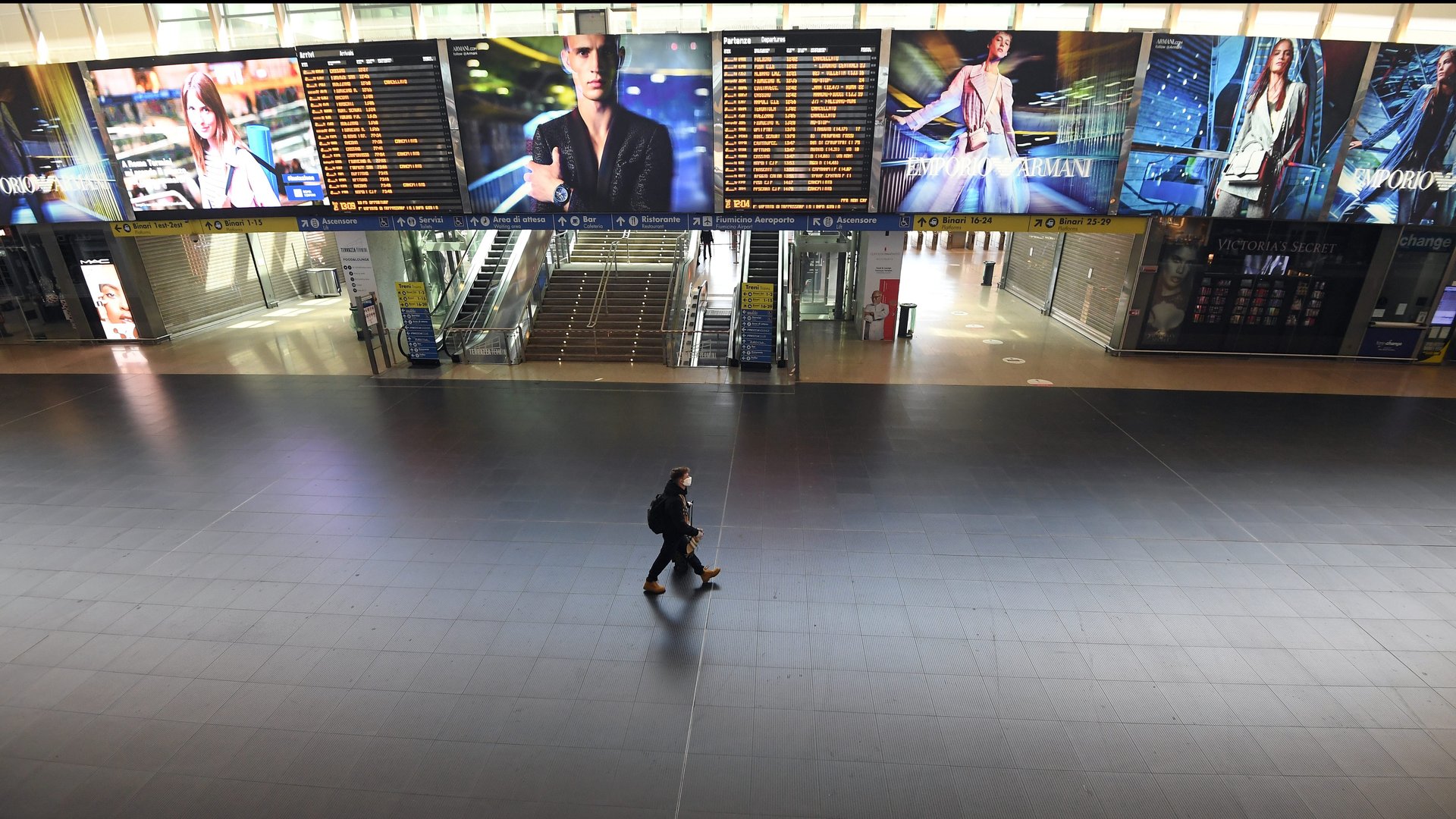Coronavirus has killed off public transportation across the Western world
Public transportation has ground to a halt.


Public transportation has ground to a halt.
Ridership has plunged more than 80% on major public transportation systems in European and US cities since Jan. 15, according to data from Moovit, an urban mobility app with 750 million users, a stark indication of how the coronavirus pandemic has brought urban life to a standstill. As of yesterday (March 23), journeys on transit modes tracked by Moovit—which include bus, train, subway, light rail, ride-hail, and shared mobility options like bikes and scooters—were down 86% in hard-hit Milan and Lombardy, 84% in Madrid, and 54% in the New York City metro area.
Moovit’s user data doesn’t include all cities and countries around the world, including many in Asia.
Many cities are now on lockdown, leaving their transit systems open only to critical workers and other riders with “essential” travel. “Stay at home,” London’s transportation regulator wrote in an email to customers today, following the announcement of near-total lockdown measures in the UK by prime minister Boris Johnson. Transport for London (TfL) has already heavily reduced services and is asking key workers to avoid early morning commutes as much as possible. More than 20% of TfL staff are reportedly sick or self-isolating.
In Italy, the country with the most deaths and second-most confirmed cases of Covid-19, public transport ridership is down between 80% and 90% in every major city Moovit provided data on to Quartz. Italy has imposed some of the strictest lockdown measures in the world in an effort to limit the spread of the virus. In Rome, buses, trams, and metros have stopped running at 9pm since March 14.
Ridership has similarly tumbled in cities in Spain, led by an 84% drop in trips in Madrid, another coronavirus hotspot.
In the US, now the country with the third-most confirmed cases of Covid-19, trips are down roughly 40% to 65% in major cities. New York City, the epicenter of the virus in the US, has limited subway and train service, reduced in-person customer service facilities, and implemented a rear-door boarding policy for buses to keep riders further from bus drivers. A group of US transit agencies has asked Congress to include at least $25 billion in support for public transportation in its federal relief package.
While the vast majority of people are being urged to stay home and away from public transportation to minimize spread of the virus, it’s crucial these services remain available to critical workers like health care professionals, first responders, and pharmacy and grocery staff.